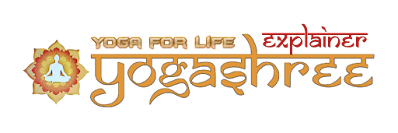One of the most effective ways to do that is meditation, quieting your chattering mind, and letting insight, intuition, and inspiration flow.
Fear and worry are in the mind. These two are a huge challenge for many. Yes, fear is sometimes there to tell us something, even to protect, us but other times it's irrational and holds us again.
Kundalini Yoga is one way to gaze inward, to look at, and alter from that deep perspective. It is not easy and it is not always fun but well worth the rewards.
Manage Your Anger- Transform Yourself
If you do a spiritual practice day by day you then begin to and will live it in all you do. You will stay from your spirit, not from your body or your head. The three will be much more integrated.
Another way to face your inner self, to transcend your compulsive and habitual urges, is silence for a few days. If this opportunity is not available to you start by giving yourself a few minutes every day.
The thoughts of Buddhist monks have been scientifically studied and been shown to function in such a way that they do not react to what the normal thoughts would consider destructive or optimistic issues. Their minds keep far more impartial.
We shouldn't have to turn out to be monks however we can be taught from their instance, giving ourselves some day by day observes, sitting nonetheless specializing in our breath 5 to 15 minutes a day once or twice a day.
Commit to your program of transcendence and see how in another way your reply to what life throws your means.
Buddha said that loving-kindness could protect us from these destructive paths. So how can we find our way to this loving-kindness?
There are five steps to aware of anger management
- Recognizing - Noticing the familiar stimulus that pushes your hot buttons and triggers the tough response. By first noticing, it means the ego has not but seized on it and reacted to it.
- Recollecting - Remember the drawback of anger and also the upside of practicing patience. The mantra is this too shall pass.
- Refraining and Restraining - Hold back your habitual negative reaction and try to see the situation through another individual's eyes. This the most difficult person or situation can become your best instructor, your best alternative.
- Relinquishing - Give up your conditional reactivity and let go of those impulsive urges and choose an extra clever response. Just settle for that anger arises and instead of acting on these urges feel them without appearing.
- Reconditioning and Responding - Let go of those unhealthy patterns and deliberately selected extra fascinating form methods to reply. This is most difficult because generally, it appears you are too passive doing nothing. But it means you are responding with equanimity, becoming wiser and more compassionate.
Practicing these steps is like taking fresh breaths of awareness. This practice can profoundly affect your life and maintain you from free-falling into the anger abyss. Listening to this bad news didn't make me sad.
If you hear additionally, you will hear their tales, we can work from the outside in, we can transform ourselves first.
Two critical questions for yourself:
Who are you?
Yoga propositions that the cause of suffering is the identification of self; thinking you are someone or something you are not. That raises the critical question: who are you?
And even, where are you from? Some reply, I'm a spiritual being having bodily expertise. This reply can be a double-edged sword.
Identifying with things of the mind and spirit can be problematic for someone who, for whatever cause, has little or no interest in her body or her heritage.
By discounting the body and all things connected to it, the yoga practitioner may, like a new convert, embrace a new id as a "yogi" and overlook her heritage, tradition, and historical past.
Are you your physical body?
The philosophy of yoga reminds us that the journey to thoughts mastery is long and requires patience, practice, and perseverance. In the end, there's freedom from suffering.
This liberation includes going past or not identifying with the physical body. In time, somewhere along the journey, the yoga practitioner will get it! I am more than the physical body!
If the person lives mostly in her head, the goal of liberation is grasped with each hand to treasure for life. The practitioner feels validated with a glimpse of freedom.
However, these ancient systems of transformation discovered in different cultures offer much more. The practitioner can become wiser and more and more divine.
The greatness, dignity, and divinity of the origins of civilization are waiting for the lover of fact to discover.
















